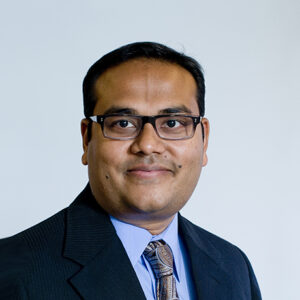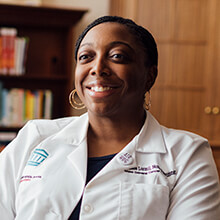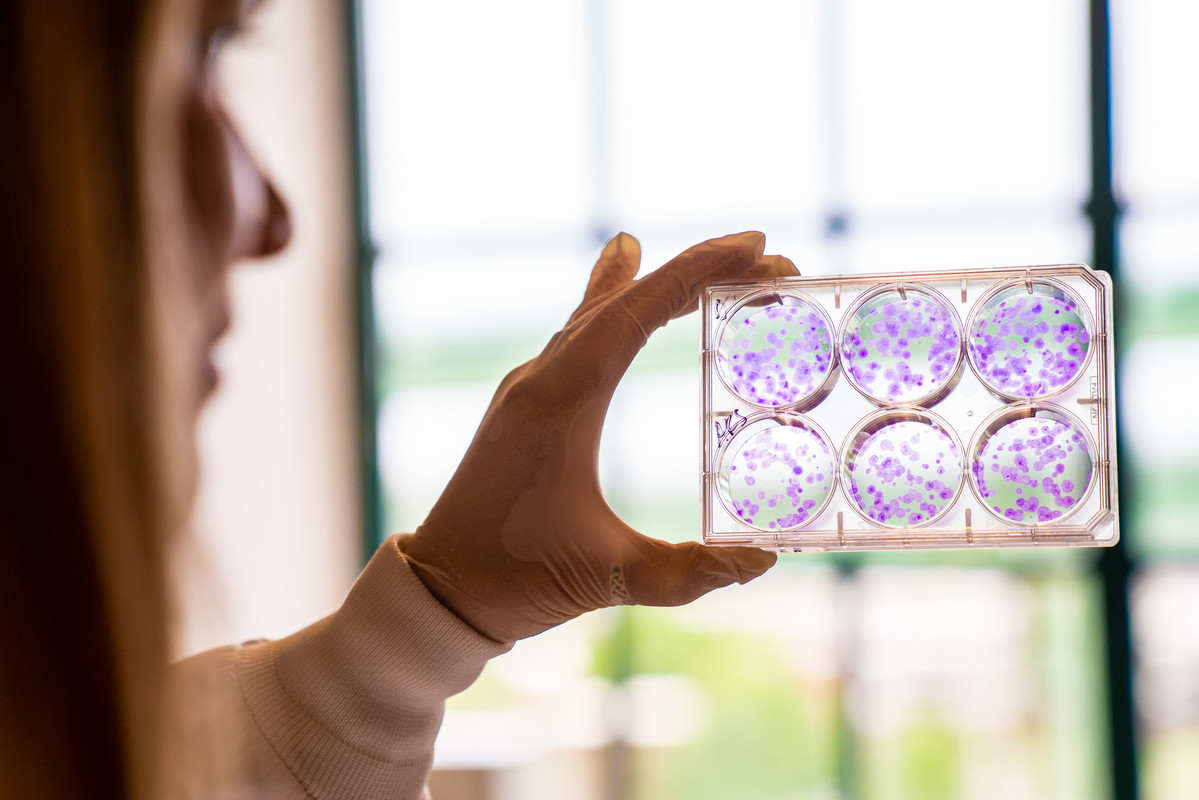Latasha Jordan had known something was wrong for weeks. She tried ignoring it at first, telling herself the swelling in her breast was nothing, just a cyst that would go away. But then came pain like she’d never experienced. And with the pain came fear.
“All I could do was cry,” says Latasha, 50. “I pictured myself dead in a casket.”
When a diagnosis was finally delivered in January 2019, Latasha’s worst fears were confirmed: triple-negative breast cancer (TNBC). Considered one of the most aggressive forms of the disease, TNBC lacks three proteins (or markers) typically found in breast cancer — estrogen receptor, progesterone receptor and HER2 — making it difficult to treat with conventional therapy. Approximately 15–20% of all breast cancer cases are triple negative, and women of color are at the highest risk of developing the disease. Faced with a grim prognosis, Latasha’s oncologist, based at Boston Medical Center (BMC), contacted the team at the Mass General Cancer Center, which partners with BMC to ensure underserved populations have access to clinical trials.

A Trial Approach
On February 14, 2020, Latasha enrolled in a clinical trial led by Aditya Bardia, MD, MPH, director of breast cancer research at the Mass General Cancer Center. The trial was an investigator-led clinical trial, meaning that it was initiated by a physician or scientist rather than a pharmaceutical company. These trials often emerge from questions real life physicians confront in day-to-day practice and frequently explore research avenues that pharmaceutical companies may not undertake because of regulatory and financial considerations. These trials also typically depend on philanthropic support.
In Latasha’s case, Dr. Bardia was seeking to determine whether a new type of therapy called an antibody drug conjugate — which had already been shown to prolong the survival of patients with TNBC — could be combined with an oral targeted therapy to produce better results for patients. The drugs had been individually approved by the FDA but had never been tested in combination because they are manufactured by different companies. “From a commercial perspective, it’s tough to do trials that bring two different industry partners together, but as an investigator-sponsored trial, we were able to do it,” says Dr. Bardia. “At the end of the day, it’s about finding the best option for the patient.”

The Mass General Cancer Center is deeply committed to finding the best treatment option for every patient. Last year, more than 4,500 people participated in clinical trials at the Cancer Center, leading to new knowledge and breakthrough therapies. When complete, the Cancer Center’s new space in the Phillip and Susan Ragon Building will more than double its current clinical research footprint, allowing physicians and scientists to conduct more — and more complex — clinical trials, including additional early-stage phase 1 clinical studies and investigator-led trials.
“You hear the terms ‘bench to bedside’ and ‘bedside to bench,’ but here at Mass General, it’s not either of those alone,” says Leif Ellisen, MD, PhD, program director for Breast Medical Oncology, whose laboratory in the Krantz Family Center for Cancer Research is working with Dr. Bardia to understand the effectiveness of this treatment combination. “It’s really that we work side by side with research, going back and forth, from the lab to the clinic to the lab — in real time — that informs how we can improve therapy.”

A New Lease on Life
Three years removed from her diagnosis, Latasha has a new lease on life — thanks to Dr. Bardia’s trial and the Cancer Center team. “She’s had a complete response,” says Elizabeth Abraham, RN, BSN, breast research nurse in the Cancer Center. “In our world, that’s just what we hope for, for all of our patients.” The experience has given Latasha — who still receives weekly infusions — a new appreciation for cancer research and the power of medicine.
“I feel blessed,” she says. “This is going to fix a lot of people.”
“When you hear that someone’s on a clinical trial, you immediately think ‘last ditch effort,’ a ‘Hail Mary’, something you try when there’s nothing else left,” says Mass General Equity Nurse Practitioner Brenda Lormil, CNP. “This isn’t trying. This is treatment.”

To learn more about how to support clinical trials at the Mass General Cancer Center, please contact us.

This story is just one example of the groundbreaking efforts taking place at Mass General, home to the largest hospital-based research enterprise in the U.S. — the Mass General Research Institute. The Research Institute encompasses and provides support to thousands of scientists, hundreds of laboratories, and helps to guide, connect and promote this unrivaled community of investigators as they advance the future of medicine, from the bench to the bedside, to the community and world.


